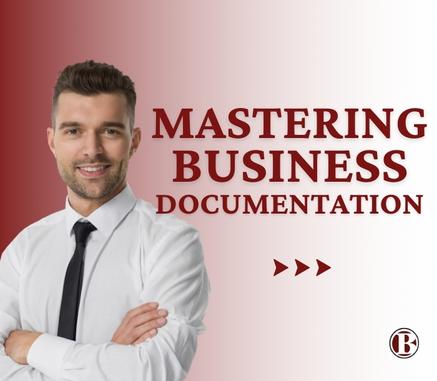In the ever-evolving landscape of business finance, staying organized and compliant with IRS regulations is paramount.
Business documentation is the bedrock upon which financial success and accountability are built.
Today, we venture into this crucial domain with Jeff Beckley of Beckley & Associates as our guide.
Understanding Beckley & Associates
Before delving into the intricacies of business documentation, it’s essential to know the driving force behind Beckley & Associates.
This firm is dedicated to helping clients realize their dreams.
The trust placed in them by clients and employees alike is a profound responsibility that shapes every decision they make.
Bank Account Documentation: More Than Statements
When it comes to business bank accounts, many believe that keeping copies of bank statements is enough to prove expenses.
However, Jeff reminds us that bank statements alone do not constitute audit-proof evidence.
To ensure you can substantiate deductions, it’s crucial to keep track of your expenses and retain copies of receipts.
While these receipts might not always be necessary for tax preparation, the IRS may require them, especially for significant expenditures.
Digital copies of receipts are acceptable, making scanning and storing them in a digital file a recommended practice.
The Complexity of Business Credit Card Statements
Business credit cards are another essential tool for entrepreneurs, but handling their documentation is no less complex.
Like bank accounts, credit cards come with statements, but these, too, fall short of IRS documentation requirements.
To be on the safe side, it’s advisable to retain copies of receipts, particularly for substantial expenses.
As with bank account receipts, you might not need these receipts or statements for tax preparation, but maintaining digital copies is a prudent practice.
Jeff emphasizes the importance of note-taking, especially if your expenditures span different calendar events.
These notes can help build a case for cash expenses.
Navigating Cash Transactions: A Delicate Dance
Cash transactions occupy a unique space in business finance. While it’s generally recommended to minimize cash usage, there are situations where it’s unavoidable.
In such cases, the only concrete proof of these expenses is the receipt.
However, Jeff provides insights into establishing evidence for cash payments through typed or handwritten notes, ensuring they align with specific calendar events.
While building a case for cash expenses is possible, receipts remain the most vital piece of evidence for proper documentation.
Summarizing the Essentials
In summary, effective business documentation for bank accounts, credit cards, and cash transactions boils down to meticulous record-keeping.
Bank statements and credit card statements serve as starting points, but they are not enough for IRS compliance.
Receipts, both physical and digital, play a crucial role in substantiating expenses.
Remember, it’s essential to align cash payments with receipts and maintain detailed notes to establish the legitimacy of these transactions.
While avoiding cash transactions is ideal, understanding how to document them properly is equally vital.
In Conclusion
Mastering business documentation is an art that all entrepreneurs and business owners should strive to perfect.
The diligence you put into organizing and safeguarding your financial records can make a world of difference when it comes to tax compliance and financial transparency.
Beckley & Associates exemplifies the commitment to helping clients realize their dreams, underpinned by a profound sense of responsibility.
Their insights on business documentation provide a valuable roadmap for maintaining financial integrity.
In this dynamic world of finance, one thing remains constant: focusing on what matters most will always lead to success.
So, take the time to refine your business documentation practices, and you’ll find yourself better equipped to navigate the financial challenges and opportunities that lie ahead.

